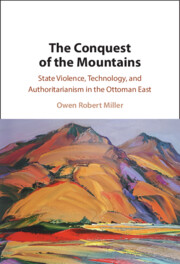Refine search
Actions for selected content:
466 results
Chapter 1 - Traditional Values and Political Trust
- from Part I - Political Guardianship Psychology and Political Trust
-
- Book:
- The Political Psychology of Citizens in Rising China
- Published online:
- 04 December 2025
- Print publication:
- 08 January 2026, pp 37-61
-
- Chapter
- Export citation
7 - Conclusion
-
- Book:
- In the Shadow of the Constitution
- Published online:
- 25 November 2025
- Print publication:
- 18 December 2025, pp 210-232
-
- Chapter
- Export citation
1 - Introduction
-
- Book:
- In the Shadow of the Constitution
- Published online:
- 25 November 2025
- Print publication:
- 18 December 2025, pp 1-37
-
- Chapter
- Export citation
3 - Constitutional Lawfare
-
- Book:
- In the Shadow of the Constitution
- Published online:
- 25 November 2025
- Print publication:
- 18 December 2025, pp 75-109
-
- Chapter
- Export citation
4 - Keeping the Spirit Alive? Constitutional Mobilisation and the Expanded Legal Complex
-
- Book:
- In the Shadow of the Constitution
- Published online:
- 25 November 2025
- Print publication:
- 18 December 2025, pp 110-148
-
- Chapter
- Export citation
5 - Saffron Suffrage
-
- Book:
- In the Shadow of the Constitution
- Published online:
- 25 November 2025
- Print publication:
- 18 December 2025, pp 149-181
-
- Chapter
- Export citation
6 - Of Art and Order
-
- Book:
- In the Shadow of the Constitution
- Published online:
- 25 November 2025
- Print publication:
- 18 December 2025, pp 182-209
-
- Chapter
- Export citation
2 - Locking-In a Constitution, Locking-Out ‘the People’
-
- Book:
- In the Shadow of the Constitution
- Published online:
- 25 November 2025
- Print publication:
- 18 December 2025, pp 38-74
-
- Chapter
- Export citation
6 - The Monopolization of Legitimate Narrative
-
- Book:
- The Conquest of the Mountains
- Published online:
- 14 November 2025
- Print publication:
- 11 December 2025, pp 155-176
-
- Chapter
- Export citation
Who’s the sovereign? Legitimating constitutional authoritarianism in interwar Poland
-
- Journal:
- European Law Open ,
- Published online by Cambridge University Press:
- 28 November 2025, pp. 1-15
-
- Article
-
- You have access
- Open access
- HTML
- Export citation

In the Shadow of the Constitution
- The Micropolitics of Constitutional Contestation in Cambodia
-
- Published online:
- 25 November 2025
- Print publication:
- 18 December 2025

Labor Unions and Democratic Unrest in North Africa
- Protest and Resistance in Tunisia and Morocco
-
- Published online:
- 20 November 2025
- Print publication:
- 20 November 2025
Authoritarianism, Global Politics, and the Future of Human Rights
-
- Journal:
- International Organization / Volume 79 / Issue S1 / December 2025
- Published online by Cambridge University Press:
- 20 November 2025, pp. S162-S179
- Print publication:
- December 2025
-
- Article
-
- You have access
- Open access
- HTML
- Export citation
17 - Transformation and Reversion, 1989–1999
-
- Book:
- Distant Friends and Intimate Enemies
- Published online:
- 30 October 2025
- Print publication:
- 20 November 2025, pp 371-392
-
- Chapter
- Export citation
1 - Introduction
-
- Book:
- Labor Unions and Democratic Unrest in North Africa
- Published online:
- 20 November 2025
- Print publication:
- 20 November 2025, pp 1-20
-
- Chapter
- Export citation

Moral Autopsy
- Truths, Secrets, and the Judicial Afterlives of Communist Secret Service Archives
-
- Published online:
- 18 November 2025
- Print publication:
- 30 October 2025

The Conquest of the Mountains
- State Violence, Technology, and Authoritarianism in the Ottoman East
-
- Published online:
- 14 November 2025
- Print publication:
- 11 December 2025
Authoritarianism before democracy was standardised: conceptualising interwar-era electoral authoritarianism, the liberal inheritance, and institutional-hierarchical alternatives
-
- Journal:
- European Law Open ,
- Published online by Cambridge University Press:
- 14 November 2025, pp. 1-23
-
- Article
-
- You have access
- Open access
- HTML
- Export citation
6 - A Front to Democracy: The Democrat Party and the Return to Authoritarian Rule, 1958–1960
-
- Book:
- The Rise and Fall of Turkey's Democrat Party
- Published online:
- 23 October 2025
- Print publication:
- 06 November 2025, pp 219-267
-
- Chapter
- Export citation
The Principle of Indivisibility in an Era of Global Democratic Decline
-
- Journal:
- German Law Journal / Volume 26 / Issue 6 / July 2025
- Published online by Cambridge University Press:
- 03 November 2025, pp. 998-1024
-
- Article
-
- You have access
- Open access
- HTML
- Export citation
